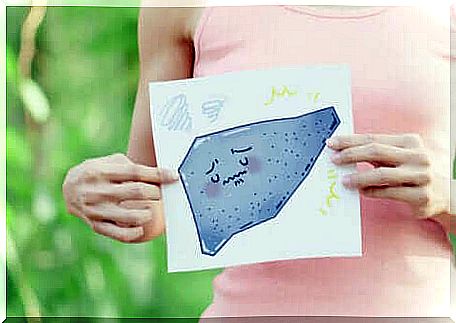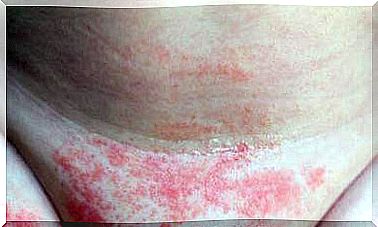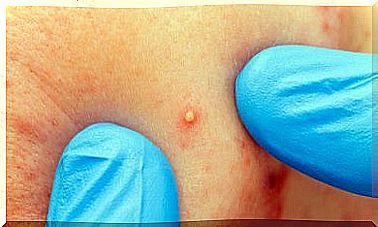Alcohol Intolerance: Everything You Need To Know

Have you ever heard of alcohol intolerance? It is a condition that can be confused with an alcohol allergy, as it causes immediate and annoying reactions after drinking alcohol.
Science reports that the difference between the two conditions lies in the fact that the allergy occurs because the immune system reacts to the substances contained in an alcoholic drink (wheat, barley, rye or other).
Intolerance, on the other hand, is a genetic condition that prevents the body from breaking down ethanol efficiently.
On the other hand, some cases suggest an intolerance to alcohol, but in reality the body reacts to chemicals or alcohol preservatives which, together with some medicines, can cause adverse reactions.
What are the causes of alcohol intolerance?
It is a genetic disorder in which the body is unable to produce the enzyme responsible for metabolizing ethanol, or synthesizes it, but is inactive.
The name of this enzyme is alcohol dehydrogenase (ADH), thanks to which the liver transforms ethanol into acetaldehyde, a substance that in high concentrations can cause cell damage.
To avoid this, another enzyme called aldelaide dehydrogenase (ALDH2) helps transform acetaldehyde into acetic acid (vinegar), a non-toxic compound.
In the case of alcohol intolerant subjects, a genetic mutation makes aldelaide dehydrogenase inactive, therefore the body is unable to eliminate ethanol and tends to accumulate it in the blood. This is the cause of the onset of symptoms.
In addition to the above, some ingredients usually present in alcoholic beverages, especially in beer and wine, can cause typical reactions of intolerance. These are:
- Preserved, especially sulphates.
- Chemical products.
- Cereals, such as barley or others.
- Histamine, a by-product of fermentation.

What are the risk factors?
The main risk factor for alcohol intolerance is being of Asian race, more prone to the genetic mutation described.
According to a study published in the journal BMC Evolutionary Biolody, this mutation is associated with a diet based mainly on rice, such as that of southern China for many centuries. But there are also other risk factors:
- Suffering from asthma or allergic rhinitis (a condition that makes the eyes water and causes runny nose).
- Allergy to cereals or other foods.
- Hodgkin’s lymphoma (cancer of the lymphatic system).
Symptoms that indicate an intolerance to alcohol
The most frequent symptom of alcohol intolerance is skin redness, especially in the face, neck and chest. In addition to this, further manifestations may arise:
- Nausea, vomiting and diarrhea.
- Tachycardia (rapid heartbeats) and hypotension (low blood pressure).
- Hives (itching and burning of the skin).
- Throbbing pain in the head, fatigue and other hangover-like symptoms.
- Worsening of previous asthma.
How is it diagnosed?
Alcohol intolerance is suspected in the presence of one or more of the aforementioned symptoms. In this case, you need to consult a professional. He will ask you a series of questions about the manifestations and reactions.
It is also possible to carry out a test to diagnose an allergy or intolerance. In this case it will be necessary to consume the alcoholic drink that triggers the symptoms, so that they can be observed by an expert.
Finally, the exam known as patch test allows you to understand if I know you have an allergy. It is done by placing a drop of ethanol in gauze that is applied to the arm. After a few minutes it will be observed if any redness, itching or burning occurs.
Treatment and prevention of alcohol intolerance
There is no way to prevent intolerance or even to cure it. Consequently, the only solution to avoid the onset of associated symptoms is to avoid alcohol consumption.
In any case, you may want to consult your doctor on what to do before the onset of symptoms in case of ingestion of ethanol.
Likewise, it is advisable to avoid smoking, which increases acetaldehyde levels. Finally, the use of antacids or antihistamines can calm the symptoms.
What other complications can alcohol consumption cause?
Not drinking alcohol is good for health. Regarding this, several studies have shown that ethanol, especially when consumed in large quantities, can cause several complications:
- Increased risk of suffering from cardiovascular disease, such as hypertension.
- Weight gain, as it provides 9 kilocalories per gram.
- Increased likelihood of suffering from liver disease.
- It depresses the nervous system, causing altering movement, concentration and attention.
- Consuming excessive amounts of alcohol is related to family, school, work, and economic problems , among others.
Alcohol intolerance is inevitable
This condition cannot be avoided, as it is related to a genetic mutation. Alcohol intolerance is often not recognized, so sufferers simply cut back on ethanol consumption if symptoms are present.
Keep in mind that if after drinking alcohol you experience skin redness, tachycardia, hypotension or any other symptoms mentioned, it is advisable to consult a professional.









